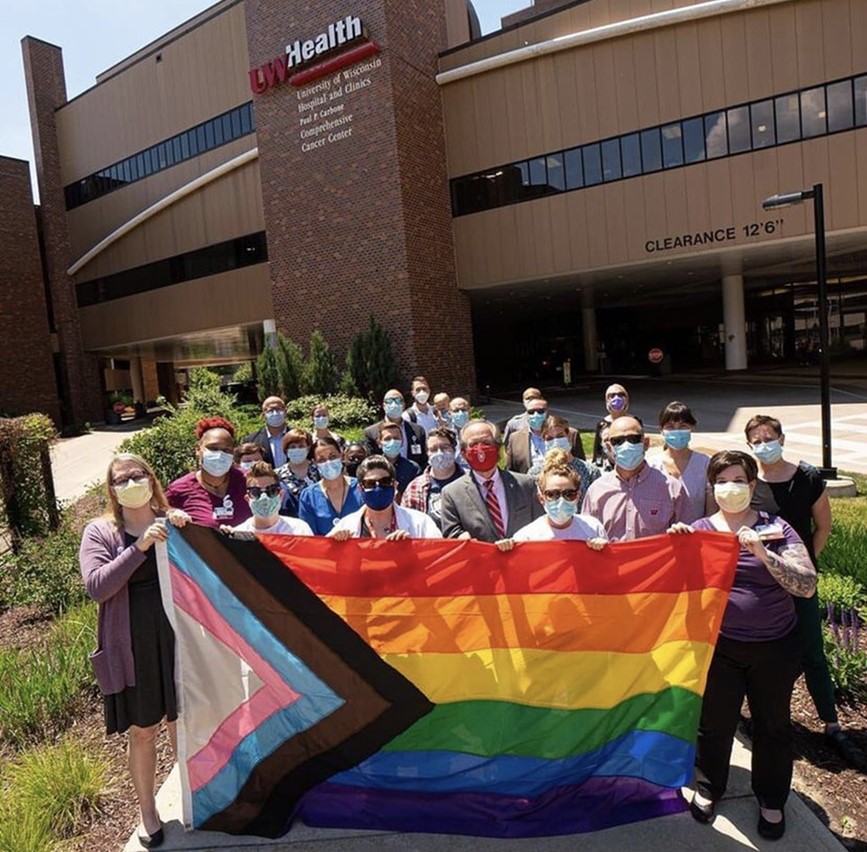The first UW Health Gender Services Clinic (GSC) welcomed patients in May 2022—the culmination of years of planning that started in 2017 with a devoted steering committee. The clinic represents a crucial step in promoting health equity for LGBTQIA+ individuals in the community who have traditionally been marginalized in areas of physical and emotional health rooted in complex systems of stigmatization and oppression.
“Historically, transgender, non-binary, and gender-nonconforming people have been marginalized and, quite frankly, traumatized by a health care system that doesn’t understand or prioritize medically necessary gender affirming services,” shared Ronni Hayon, MD, co-medical director of the GSC. “Many of us who provide gender-affirming care have been daydreaming about this clinic for many years.”

UW Health celebrates the opening of its Gender Services Clinic.
The GSC is a true multi-disciplinary clinic where patients can access a full array of coordinated clinical services in an environment that is inclusive, welcoming, and affirming of each person’s gender identity. The centralized clinic increases access for patients throughout Wisconsin and from all over the country.
According to a 2015 National Center for Transgender Equality survey, transgender, nonbinary, and gender expansive individuals delay care due to fear and/or mistreatment, negative health care experiences, and face complicated insurance barriers compared to cisgender individuals.
Gender Services Program Coordinator Callen Smith, RN, MSN, believes UW Health has a responsibility to improve equity.
“The more knowledge we bring together, the better care we can bring for our patients. At UW Health, we have a health care team providing expert care, but many services are siloed throughout the organization. Bringing these services together to one space provides better access to patients and more collaboration across specialties,” said Smith.
The GSC offers 11 different specialties, in three different clinic sessions, with six to seven different specialties in each session. For example, a single patient may receive consults with behavioral health, endocrinology, ENT facial plastics, family medicine, plastic surgery, and speech/voice in one location on the same day instead of over several separate appointments.
New patients work with GSC registered nurse navigators to complete a comprehensive intake assessment and follow up at their provider’s home clinic. In addition to providing high quality direct patient care, the GSC will help train the next generation of affirming clinicians by offering training and educational opportunities.
“Ultimately, we hope that trainees will go on to provide truly affirming care and advocate for change in their own communities so that TNG people and their families can thrive,” added Hayon.
Smith is optimistic but believes the work to improve LGBTQIA+ health care is far from over.
“I feel honored that I have been trusted to do this work and despite so many uncertainties, I feel hopeful,” continued Smith. “I have seen awareness, education, and services continue to grow and have high hopes for the future of health care if we continue in this direction.”
More information about the UW Health Gender Services Program.
Published: August 2022 | Updated: March 2023
